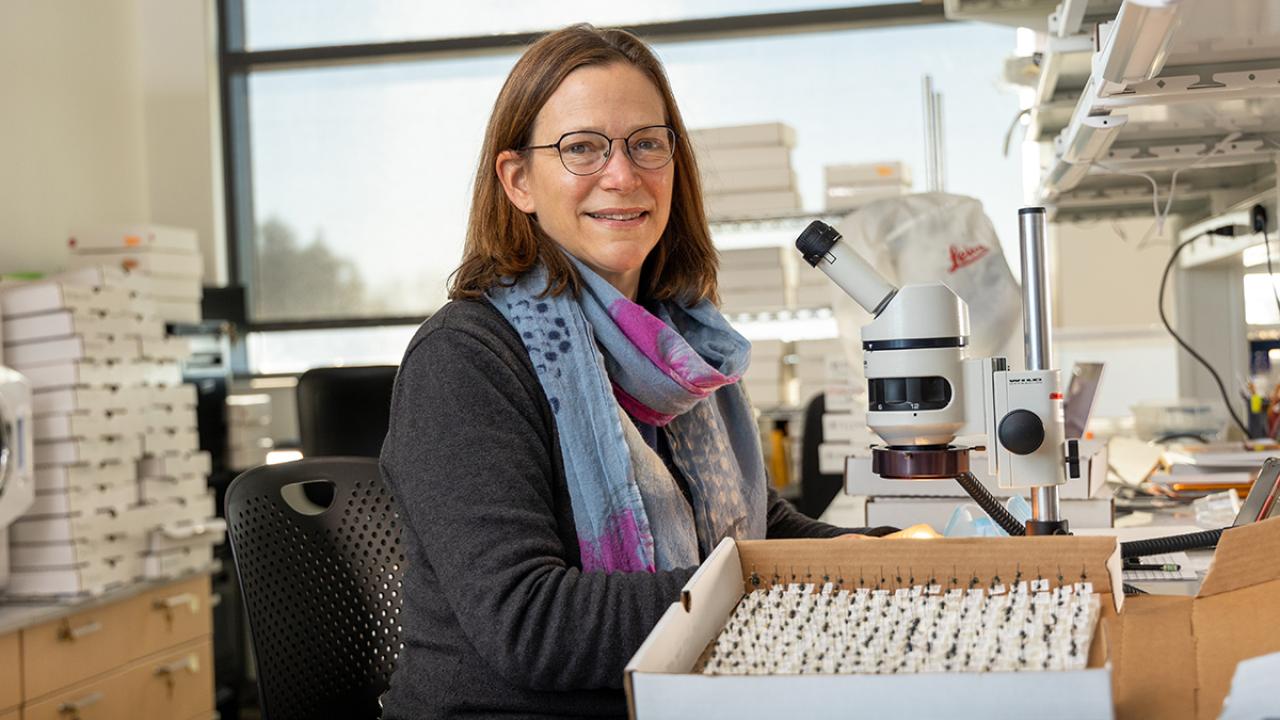Professor Karen Goodell Part of $1 Million, Three-Year Research Grant
Thanks to the research of Ohio State Newark Professor Karen Goodell, PhD, and her colleagues, threatened pollinators across the United States could be on their way to better protection.
Goodell was part of a team that was recently granted almost $1 million from the United States Department of Defense to develop environmental DNA (eDNA) tools to monitor for threatened and endangered pollinators, such as the Rusty-Patched Bumble Bee, on military lands.
Traditional field surveys to detect threatened or endangered species are cost-prohibitive, can harm the target species if collected specimens are euthanized for identification, and require significant taxonomic expertise and resources. But the monitoring techniques proposed by Goodell and her team aim to save resources and the lives of pollinators.
The DNA will be collected from flowers, bee-collected pollen, and leaves that are used as butterfly host plants using methods that can be performed by non-taxonomic experts, Goodell said.
“Going out and collecting a bunch of flowers is a lot easier than what I do, which entails conducting standardized surveys, collecting insects and trying to figure out which species they are. You need a lot of taxonomic expertise to do that,” she said. “So the idea is to develop techniques that people in the Department of Defense can use or that can be performed by hired consultants. Essentially, they would collect flowers or other substrates that might have scraps of target species’ DNA…then all they need is a genetics lab and bioinformatics to figure out if the endangered species is there.”
Her lab will be conducting pollinator surveys on military lands within the range of several threatened and endangered bee and butterfly species. Meanwhile, her colleagues — Rodney Richardson and Matthew Fitzpatrick, of the University of Maryland Center for Environmental Science Appalachian Laboratory — will be doing lab analysis and mathematical modeling to determine the probability of detection of different species based on their abundance and the team’s sampling methods, Goodell said.
The work will be done over three years across the United States, starting in the east and ending up in the west. As a result of their research, pollinators on military land across the country can be protected in an efficient and cost-effective manner.
“We're developing a protocol that would be available for anybody to use,” Goodell said.
Goodell joined the Ohio State Newark faculty in 2004. She teaches introductory biology to majors and non-majors, engages undergraduates in independent research, and trains graduate students. Her research investigates the interactions between plants and pollinators, with a specific interest in understanding factors that influence the populations and communities of native bees.
In Ohio, Goodell has worked to understand how mine reclamation influences pollinator communities, how crop management practices influence important crop pollinators, and how invasive species interact with pollinators.
Goodell will receive about a third of the million-dollar grant, with the remaining funds going toward her colleagues.
